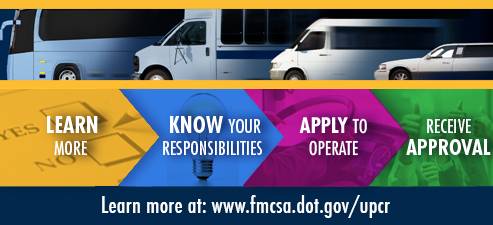FMCSA Requirements
The American economy is limping back to normalcy this summer, as states begin to slowly and hesitantly re-open business. And yet, the Covid-19 crisis seems to be far from over. It is hence prudent for businesses to take extra precautionary measures, in order to minimize the risks of running operations in a pandemic-driven world. In fact, this becomes the urgent need of the hour, especially if your business depends on frequent inter-state travel for regular operations! Here is what you need to know about the recent FMCSA requirements.

Fortunately, the FMCSA – a federal body that regulates inter-state commercial vehicles across the US and assigns them a Department of Transportation (DOT) number, has rightly come up with the additional guidelines on drug and alcohol testing to mitigate the current crisis.
1. Revised timeline for completion of random testing as per 49 CFR 382.305(k)
In the pre-Corona world, an FMCSA mandate required businesses to conduct random tests on their inter-state drivers, especially for DOT vehicles, at periodic intervals spread across the year. On top of this, there was a standard assignment of at least a 50% rate for drug testing and a 10% rate for alcohol testing. These mandates still stand.
But in the present situation, an increasing number of businesses are finding it challenging to stay within recommended/scheduled timelines. The FMCSA has hence extended this mandate, allowing businesses to conduct at least one test every quarter, provided they complete the entire quote by the end of the year. They will also need to document complete details for tests that did not adhere to the initial schedule proposed.
2. Adherence to pre-employment testing as per 49 CFR 382.301(a), and return-to-duty testing as per 49 CFR 40.305(a)
Both these mandates remain largely unchanged. With this, businesses are required to ensure that both new and returning employees successfully pass the test for controlled substances before they are assigned any safety-sensitive responsibilities on a DOT vehicle.
3. Adherence to post-accident testing as per 49 CFR 382.303
The original mandate required businesses to test a driver for drugs, alcohol, and other controlled substances shortly after an accident. The timelines for these tests have now been extended – within 8 hours for alcohol testing and within 32 hours for drug testing. In the event this is not possible due factors directly influenced by the Covid-19 crisis, detailed supporting documentation needs to be submitted outlining the reasons contributing to the delay.
4. Adherence to reasonable-suspicion testing as per 49 CFR 382.307(f)
This is again a mandate passed by the FMCSA. But in the event a business is unable to conduct this test due to logistic issues directly influenced by the Covid-19 crisis, the business needs to submit detailed supporting documentation for the non-adherence. This needs to include what observations led to scheduling a reasonable-suspicion test, what Covid-19 influenced factors contributed to the delay, and what additional steps were taken to mitigate the delay (like scheduling a test before the end of the year at the next available site, etc.).
5. Adherence to follow-up testing
This may be mandated for various reasons, but especially when a driver/employee fails a prior test. If the original schedule cannot be maintained, the business needs to submit supporting documentation outlining (a) reasons for the delay, (b) if the test has been scheduled before the end of the year, and (c) what mitigation steps were considered to offset the delay in testing.
Learn more about FMCSA Requirements by following us on social media.
Facebook | Twitter | LinkedIn | Pinterest | Instagram | YouTube










